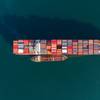Law of the Sea Treaty Heads Arctic Challenges for U.S.
The melting polar icecap is presenting both opportunities and challenges for the United States and other Arctic nations, as well as other nations with interests in the region. Arctic ice cover has declined consistently over the past few decades. Increased accessibility, dubbed an “emerging maritime frontier” by U.S. Coast Guard Commandant Admiral Robert J. Papp, Jr., presents a host of opportunities for oil and gas development, fishing, tourism, and transportation. It also creates myriad challenges related to Arctic governance, marine safety, indigenous populations, scientific research, and environmental stewardship. This article reviews the state of play regarding claims to the Arctic and the U.S. Coast Guard’s efforts to develop a strategy to meet its increasing responsibilities in the Arctic.
Arctic Conflicts
The Arctic Ocean is perhaps the last unexplored region in the world. The U.S. Geologic Survey has estimated that the Arctic holds one-fifth of the world’s undiscovered, recoverable oil and gas. In 2009 the Energy Department calculated that the Russian side of the Arctic is richer in natural gas, while the North American side is richer in oil.
All five countries bordering the Arctic Ocean, Russia, Norway, Denmark, Canada, and the United States, are asserting ownership over regions of the Arctic. Russia claimed a vast portion of the Arctic reaching the geographic North Pole, stating that the entire area is part of the Siberian landmass. Russia expects the Arctic to become its primary resource base by 2020 and has made commitments to securing and protecting its Arctic interests. Norway asserted right to two yet unclaimed portions of the Barents Sea and Norwegian Sea. Canada and Denmark have made unofficial claims and are conducting research to support their assertions. With areas of overlapping claims or general disapproval by the international community, many of the Arctic claims thus far are in conflict and remain unresolved.
The increasing viability of the Northwest Passage as a shipping route has also created a substantial amount of conflict. The Northwest Passage is a potential trade route that weaves through the Canadian Arctic Archipelago reducing voyage time significantly. Canada claims the Northwest Passage as its internal waters, which allows Canada to regulate every aspect of the area, including transits. The international community has interpreted it as an international strait over which Canada would have little control.
The United States has significant interests in the outcome of Arctic issues. International recognition of U.S. sovereignty over portions of the Arctic would provide opportunity for U.S. businesses, particularly the oil and gas development industry, meet national security needs, and allow the United States to ensure adequate environmental protections. The United States has also argued strongly that the Northwest Passage is an international strait.
Relation between the Law of the Sea Treaty and Events in the Arctic
To date, there is no international agreement to which the U.S. is a party that clearly allocates the resources and sea lanes of the Arctic. In the past, some have proffered a separate Arctic Convention. But, recently, the relationship between the Arctic and the Law of the Sea treaty has come to the forefront. The U.S. is the last industrialized nation and the only member of the U.S. Security Council who has not ratified this treaty. To do so now requires a two-thirds vote of the U.S. Senate. Most recently, Senator John Kerry, Chair of the Senate Foreign Relations Committee, backed by the Obama Administration, is trying to develop the necessary support to accede to the treaty.
At a recent Senate Foreign Relations Committee hearing, the Obama Administration brought out a troika of big guns to support ratification of the Law of the Sea Treaty. Testifying for the Administration were Secretary of State Hillary Clinton, Secretary of Defense Leon Panetta, and General Martin Dempsey, Chairman of the Joint Chiefs of Staff. It is the first time a sitting Secretary of Defense has testified in person in support of ratification. The three witnesses gave compelling testimony why the U.S. should accede to the treaty.
- Mineral Rights in an Extended Continental Shelf
Secretary Clinton explained that by acceding to the treaty, “[t]he United States is further advantaged by provisions in the treaty that allow the continental shelf –and oil and gas rights—to extend beyond 200 miles in certain areas. Off the north shore of Alaska, our continental shelf could extend 600 miles into the Arctic.” Under the treaty, a nation is allowed to prove that its continental shelf extends by virtue of geography beyond the 200-mile Exclusive Economic Zone. However, the U.S. does not have a seat or representative at the Commission on the Limits of the Continental Shelf, established under the treaty, at which claims from nations to extended sovereignty can be proposed, debated, and proven. Russia, for example, has already claimed a large extended continental shelf as far as the North Pole based on the Lomonosov Ridge, an extension of the Siberian continental shelf. But, the U.S. has no official means of contesting this.
- Rights to Navigation
Secretary Panetta echoed Secretary Clinton’s remarks as to the economic benefits that would be derived by joining the treaty testifying that “[a]ccession would also secure our navigation and over-flight rights throughout the Arctic, and strengthen our arguments for freedom of navigation through the Northwest Passage and Northern Sea Route.” Ensuring the U.S. has access to mineral resources believed to be in the Arctic should be combined with securing and maintaining our navigational freedoms through and under the sea.
Finally, Joint Chiefs Chairman Dempsey noted that the treaty would provide a “consistent and effective legal framework” for opposing expanded and “illegitimate” maritime claims by other nations, which he noted has become “particularly problematic in the Pacific and the Arctic, two regions whose importance to our security and our economic prosperity will only increase over the next several decades.” Supporting the rule of law was a major theme echoed by the Administration witnesses.
- Opposition to the Treaty Continues
The witnesses were not able to persuade the opponents of the treaty to their point of view. Senator Inhofe (R-OK), for example, expressed the concerns of the minority that joining the treaty would lead to both a loss of sovereignty and to a loss of revenue from sharing revenues that derive from development in the extended continental shelf. Secretary Clinton acknowledged that revenues might be shared with less developed countries from the extended outer continental shelf, but only after many years of production. The Heritage Foundation continues to oppose the treaty on the grounds that it could expose U.S. industry to “baseless international lawsuits,” although, on the day of the Kerry hearing, the U.S. Chamber of Commerce took out a full page advertisement in the Wall Street Journal urging U.S. ratification.
Senator Kerry committed to giving the opponents more hearings to present their points of view and agreed not to bring the treaty to the Senate Floor for a vote until after the Presidential election. In the meantime, he has scheduled hearings to take testimony from current and former Defense Department officials. Former Secretary Rumsfeld is one of the witnesses who will oppose ratification.
U.S. Coast Guard Arctic Initiatives
The U.S. Coast Guard, recognizing its responsibilities in the Arctic are increasing as more and more navigable water becomes available, has begun an Arctic Maritime Campaign to evaluate its required mission activities and to determine the resources it needs to successfully conduct those activities, including icebreaking, search and rescue, and environmental response capabilities. As evidence, recently the Coast Guard Academy hosted a conference entitled “Leadership for the Arctic.” Unfortunately, there is currently little Coast Guard infrastructure to support Arctic operations, ashore or at sea. The Coast Guard has stated that it requires at least four heavy and two medium icebreakers to fulfill its missions in the Arctic. It currently has only one operational icebreaker, the Coast Guard Cutter HEALY, a medium sized icebreaker designed for conducting scientific research. Two additional heavy-duty icebreakers, the POLAR STAR and POLAR SEA, have been out of service since 2010. The POLAR STAR is undergoing extensive repairs preparing for reactivation in 2013. Plans to decommission the POLAR SEA in June were put on hold to allow Congress more time to establish a firm plan to strengthen the United States’ icebreaker fleet. In the meantime, the Coast Guard is establishing a presence in northern Alaska in view of the many emerging Arctic activities.
Conclusion
The debate over the Arctic with its potential for extended transport, and underlying wealth of resources beneath the ocean has just begun. Because the U.S. cannot unilaterally claim the deep seabed or extended continental shelf beyond national waters, the Administration has concluded that only an international agreement can provide the security that the U.S. needs to operate in the Arctic. Detractors of an international agreement disagree and have successfully blocked ratification efforts to date. As Arctic activities increase, so will the intrigue on the final resolution of the legal and political issues.
About the Authors
Joan M. Bondareff
[email protected]
202.772.5911
Joan Bondareff, of counsel at Blank Rome, focuses her practice on marine transportation, environmental, and legislative issues.
Duncan C. Smith
[email protected]
202.772.5956
Duncan Smith, partner at Blank Rome, focuses his practice primarily on legislative matters and represents clients in connection with a range of issues, including maritime.
Dana S. Merkel
[email protected]
202.772.5973
Dana Merkel, associate at Blank Rome, focuses her practice on providing legal advice to companies involved in the maritime industry.
(Published in the July 2012 edition of Maritime Reporter & Engineering News - www.MarineLink.com)














